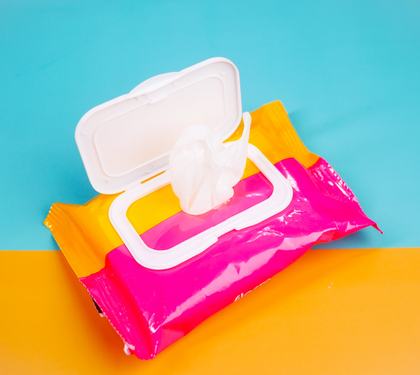n our fast-paced world, the idea of living sustainably can seem daunting. However, adopting an eco-friendly lifestyle doesn't necessarily mean a complete overhaul of your daily routines. Often, the simplest changes can make the most significant impact. Here are some surprisingly simple sustainability hacks that you can easily incorporate into your life.
2. Shop Second-Hand
Thrift stores, consignment shops, and online marketplaces offer a treasure trove of gently used items. From clothing to furniture, buying second-hand not only saves you money but also reduces the demand for new products, which often come with a high environmental cost due to production and transportation.
3. Switch to LED Bulbs
LED light bulbs use up to 80% less energy than traditional incandescent bulbs and last significantly longer. While they may be slightly more expensive upfront, the savings on your electricity bill and the reduced need for frequent replacements make them a smart and sustainable choice.
4. Unplug Devices When Not in Use
Many electronics and appliances consume energy even when they're turned off. This "phantom" energy usage can add up over time. Simply unplugging devices when they're not in use, or using a power strip to easily turn off multiple items at once, can lower your energy consumption.
5. Adopt a Plant-Based Meal
You don't have to become a full-time vegetarian or vegan to make a difference. Even one plant-based meal a week can reduce your carbon footprint. The production of meat, particularly beef, is resource-intensive and generates significant greenhouse gas emissions. Exploring new vegetarian recipes can be both fun and beneficial for the planet.
6. Compost Your Food Waste
Instead of tossing food scraps in the trash, start a compost bin. Composting not only reduces the amount of waste sent to landfills but also creates nutrient-rich soil that can be used for gardening. If you don’t have a yard, many urban areas have community composting programs or services that will pick up your compost.
7. Use Public Transportation, Walk, or Bike
Whenever possible, opt for public transportation, walking, or biking instead of driving. These alternatives not only reduce your carbon emissions but also save you money on fuel and parking. Plus, walking and biking are great ways to incorporate exercise into your daily routine.
8. Fix and Mend Instead of Throwing Away
Before you discard items that are broken or worn out, consider repairing them. Learning basic sewing skills can help you mend clothes, while a quick online search can provide tutorials for fixing everything from electronics to furniture. This approach extends the life of your belongings and reduces waste.
9. Reduce Water Waste
Simple habits like turning off the tap while brushing your teeth, taking shorter showers, and fixing leaky faucets can conserve a significant amount of water. Additionally, installing low-flow showerheads and dual-flush toilets can further reduce your water usage.
10. Support Sustainable Brands
When you do need to purchase new items, support brands that prioritize sustainability. Look for companies that use eco-friendly materials, practice fair trade, and have transparent supply chains. Your purchasing power can drive demand for more sustainable products and practices.
Sustainability doesn't have to be overwhelming or expensive. By making small, conscious changes in your daily life, you can contribute to a healthier planet. Start with one or two of these simple hacks and gradually incorporate more. Every step you take towards sustainability makes a difference and sets a positive example for those around you. Let's embrace these easy habits and move towards a greener, more sustainable future together.





